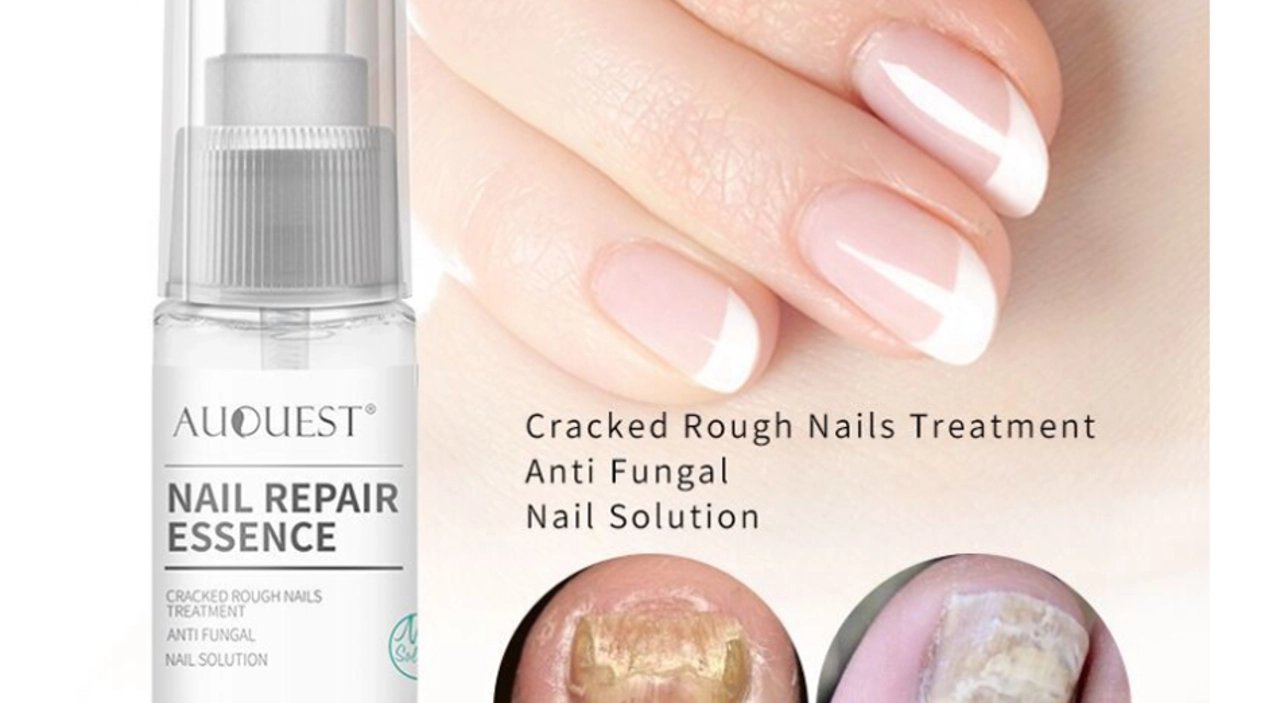Introduction to Clotrimazole and Nail Fungus
As a blogger, I've received many questions about the effectiveness of clotrimazole in treating nail fungus. In this article, I will dive deep into this topic and provide you with all the information you need to know about clotrimazole and its role in combating nail fungus. So, let's first understand what clotrimazole is and how it works.
What is Clotrimazole?
Clotrimazole is an antifungal medication commonly used to treat various fungal infections, including athlete's foot, jock itch, and ringworm. It works by inhibiting the growth of fungi that cause infection, primarily by disrupting the production of fungal cell membranes. This weakens the cell walls of the fungus, ultimately killing it and preventing the infection from spreading.
How Does Nail Fungus Occur?
Nail fungus, also known as onychomycosis, is a common condition that occurs when microscopic fungi enter the nail bed through small cracks or cuts in the skin. The warm, moist environment within the nails provides the perfect breeding ground for fungal growth. Over time, the fungus can cause changes in the appearance and texture of the nails, such as thickening, discoloration, and brittleness.
Using Clotrimazole for Nail Fungus Treatment
As an antifungal medication, clotrimazole can be used to treat nail fungus. It is typically available in various over-the-counter (OTC) formulations, such as creams, sprays, and powders. To use clotrimazole for nail fungus treatment, you should clean and dry the affected area before applying the medication according to the package instructions. It is essential to continue using the medication for the entire recommended duration, even if the symptoms improve, to prevent the fungus from returning.
Effectiveness of Clotrimazole in Treating Nail Fungus
Clotrimazole has been proven effective in treating various fungal infections, including some cases of nail fungus. However, it may not be as effective as other antifungal medications for more severe or widespread nail fungus infections. In these cases, oral antifungal medications, such as terbinafine or itraconazole, may be prescribed by a doctor for a more aggressive treatment. Additionally, some nail fungus infections may require a combination of oral and topical antifungal treatments to achieve the best results.
Potential Side Effects of Clotrimazole
Like any medication, clotrimazole can cause some side effects, although they are generally mild and well-tolerated. Common side effects include skin irritation, redness, itching, or burning at the application site. These side effects usually subside as your body adjusts to the medication. However, if you notice any severe or persistent side effects, it's essential to consult with your healthcare provider immediately.
Precautions to Consider When Using Clotrimazole
Before using clotrimazole for nail fungus treatment, it's crucial to take certain precautions to ensure the safe and effective use of the medication. Always follow the package instructions or your healthcare provider's recommendations. Be sure to avoid contact with your eyes, nose, or mouth, and wash your hands thoroughly after applying the medication. Additionally, do not use clotrimazole if you are allergic to it or any of its ingredients.
Alternative Treatments for Nail Fungus
If you find that clotrimazole is not providing the desired results or if you are looking for alternative treatments for nail fungus, there are several other options available. These may include other topical antifungal medications, such as ciclopirox or amorolfine, oral antifungal medications, or even laser therapy. It is essential to consult with your healthcare provider to determine the best course of treatment for your specific case of nail fungus.
Preventing Nail Fungus Recurrence
After successfully treating nail fungus with clotrimazole or other treatments, it's essential to take preventive measures to avoid recurrence. This may include keeping your feet clean and dry, wearing moisture-wicking socks, choosing breathable footwear, and avoiding walking barefoot in public places. Additionally, it's crucial to maintain proper nail hygiene, such as trimming your nails regularly, avoiding tight shoes that can cause nail trauma, and sanitizing your nail tools.
Conclusion: Is Clotrimazole Effective for Nail Fungus?
In conclusion, clotrimazole can be an effective treatment for nail fungus, particularly for mild to moderate cases. However, it may not be the most effective option for more severe or widespread infections. It is essential to consult with your healthcare provider to determine the best course of treatment for your specific case and follow the recommended precautions and preventive measures to ensure the safe and effective use of clotrimazole or any other antifungal medication.





suresh mishra
Clotrimazole works well for mild onychomycosis, but you still need to apply it daily for several weeks and keep the nail dry to see results.
Reynolds Boone
Great rundown! I’ve tried the cream on a stubborn toenail and noticed less discoloration after a month, especially when I paired it with proper foot hygiene.
Angelina Wong
Thanks for the thorough article. For those who prefer a topical route, make sure to file the affected nail lightly before each application; this improves drug penetration. Also, avoid using nail polish until the treatment course is complete because it can block the medication. If irritation occurs, a short break of a few days usually resolves it, but resume promptly. Remember that consistency is key-missing doses will likely prolong the infection.
Anthony Burchell
Honestly, clotrimazole is almost a joke for nail fungus. The nail plate is too thick for any cream to reach the fungus, so you’re basically painting over the problem. If you want real results, you need oral meds or laser therapy, not this weak topical.
Michelle Thibodeau
I truly appreciate the depth of this piece, as it demystifies a condition that many of us silently endure. Nail fungus, while seemingly trivial, can affect confidence, especially when the discoloration is visible in open-toed shoes. The fact that clotrimazole offers a viable over‑the‑counter option is a boon for those hesitant to seek prescription drugs. Its mechanism-disrupting ergosterol synthesis-targets the fungal cell membrane, a strategy that has stood the test of time. For mild to moderate cases, consistent topical application can gradually erode the infection, restoring nail clarity over months. Pairing the treatment with diligent foot hygiene-dry socks, breathable footwear, and regular nail trimming-creates an environment hostile to fungal resurgence. Moreover, the psychological uplift from taking proactive steps cannot be overstated; it reinforces a sense of agency over one’s health. While the medication may not penetrate severely thickened nails, many users report noticeable improvement within eight to twelve weeks. Patience, however, remains paramount; nails grow slowly, and the visual transformation trails behind the microbial clearance. If you experience mild irritation, a brief pause followed by resumed usage usually suffices, but any persistent burning warrants a physician’s review. Combining clotrimazole with other topical agents such as urea can soften the nail surface and enhance drug delivery. In addition, some clinicians suggest adjunctive oral antifungals for recalcitrant infections, a strategy that blends the safety of topicals with the potency of systemic therapy. The key takeaway is that clotrimazole is not a silver bullet, but it is a valuable component of a multifaceted treatment plan. By staying committed to the regimen and embracing complementary preventive measures, most individuals can achieve a healthy, fungus‑free nail. So, in essence, while the journey may be gradual, the destination is well within reach for those who persist.
Patrick Fithen
Clotrimazole reminds us that even tiny molecules can wage war on stubborn invaders the nail is a fortress yet persistence can wear down the walls think of each application as a small soldier marching forward the collective effort eventually tips the balance in our favor
Michael Leaño
What a comforting perspective! It’s amazing how small daily actions can add up to big victories against fungus. Keep the faith and stay consistent-you’ve got this.
Anirban Banerjee
Dear readers, it is imperative to adhere strictly to the application schedule delineated by the manufacturer, ensuring that the affected area remains impeccably clean and desiccated prior to each dose; such rigor maximizes therapeutic efficacy.
Mansi Mehra
The article overlooks the cost factor of clotrimazole treatments.
Jagdish Kumar
Ah, the age‑old saga of nail fungus! One might think a humble cream could rival the grandeur of oral agents, yet the drama unfolds as the nail stubbornly resists. Still, let us not dismiss the subtle charm of topical therapy-it whispers promises of convenience and safety, even if it sometimes plays the understudy.
Aminat OT
lol i think u should just try ditching the polish too cuz it traps the stuff like a trap lol💅